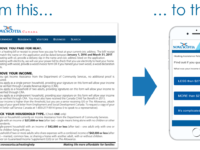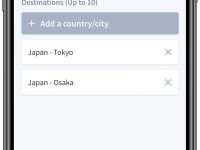Estonian Government has launched an action plan for life event service design. The target is to have by the end of 2020 seven life event services designed and live. One of the first of these life event services is having a child service that has the first part of it, proactive offering of the family benefits is live since October 2019. It means that once the birth of a child is registered and given a name, an email is sent to the parents to receive family benefits.
Innovation Tag: Process Improvement/Simplification
Parents Gateway is a one-stop, centrally coordinated app streamlining engagement between parents and schools, capable of direct mass communication of time-sensitive messages of high level of importance to all parents nationwide. With curriculum time saved, teachers previously burdened with onerous administrative work are free to focus on core teaching and to better meet students’ needs. Parents stressed by disparate admin processes for children in different schools can now manage all in one…
Case Study
Using behavioural insights to increase patient engagement with validation of hospital waiting lists
Administrative validation of waiting list is where patients are contacted by hospitals in writing to confirm if they still require hospital care or wish to be removed from a waiting list. Many patients do not reply to validation letters. This innovation involved a collaborative redesign of the validation letter, the application of a range of behavioural insights to letter design and testing through a randomised control trial.
10x is a stage-gated internal investment program for the United States government, modeled on modern venture capital practices, that funds the exploration and development of new product ideas, sourced from civil servants, to significantly improve how the government uses technology to serve the public good.
The Internet is a great communication tool. People use it all the time both at work and for leisure, but what about interacting with the government? Even though most of the Portuguese public services are digital, its use was below expectations. The answer was the creation of a network of Citizen Spots, which are multiservice physical counters where a “specialized mediator” assists citizens accessing online public services and teaches them how to perform them autonomously thereafter.
Where organisations in the criminal law domain used to originally operate in a chain, things changed when a different approach to dealing with common crimes was adopted. The police, the Public Prosecutor's Office, victim support, and the probation service are all based at one single location, enabling them to handle complete cases within a time span of only nine hours. With this new working method, cases are kept simple, settled quickly, handled together, and treated as selectively as possible.
Since 1 January 2013, the regional social services unit for the Drechtsteden area in the Netherlands’ South Holland province has been procuring domestic support based on performance agreements with care providers. By putting performance first, instead of the number of hours of support provided, care providers are incentivized to work more efficiently. The new method comes with benefits for users, for the Drechtsteden region, and for care providers.
Case Study
Putting Users First: An Innovative Approach to the Modernization of the Heating Assistance Rebate…

The Heating Assistance Rebate Program (HARP) helps over 42,000 low income Nova Scotians with the high cost of heating their homes in the winter. In 2016 Service Nova Scotia used an innovative approach to modernize HARP from a paper-based application to an online system to improve user experience and government processes. The modernization of this program was uniquely user-driven with significant user-testing leading the transition process and continuous user-testing for ongoing improvement.
The digital economy is booming in Medellín. So is digital tax evasion. To identify potential tax evaders, the local treasury department used to detect unregistered online stores manually. Since the use of social media for economic activities has grown exponentially, the agency has now developed a bot that automatically scrapes Instagram for such stores - and officers can use their time instead to work with store owners to formalize their businesses.
In most countries residents are entitled to a number of social benefits, but few people ultimately claim these benefits as they may be unaware of them, of who is eligible, how to apply for them etc. Israel was no different, until recently when Kol Zchut developed www.kolzchut.org.il, which holds over 6,000 information pages, serving more than 6 million unique users annually (>50% of Israelis), dramatically increasing public accessibility to information, and boosting claims to benefits.



